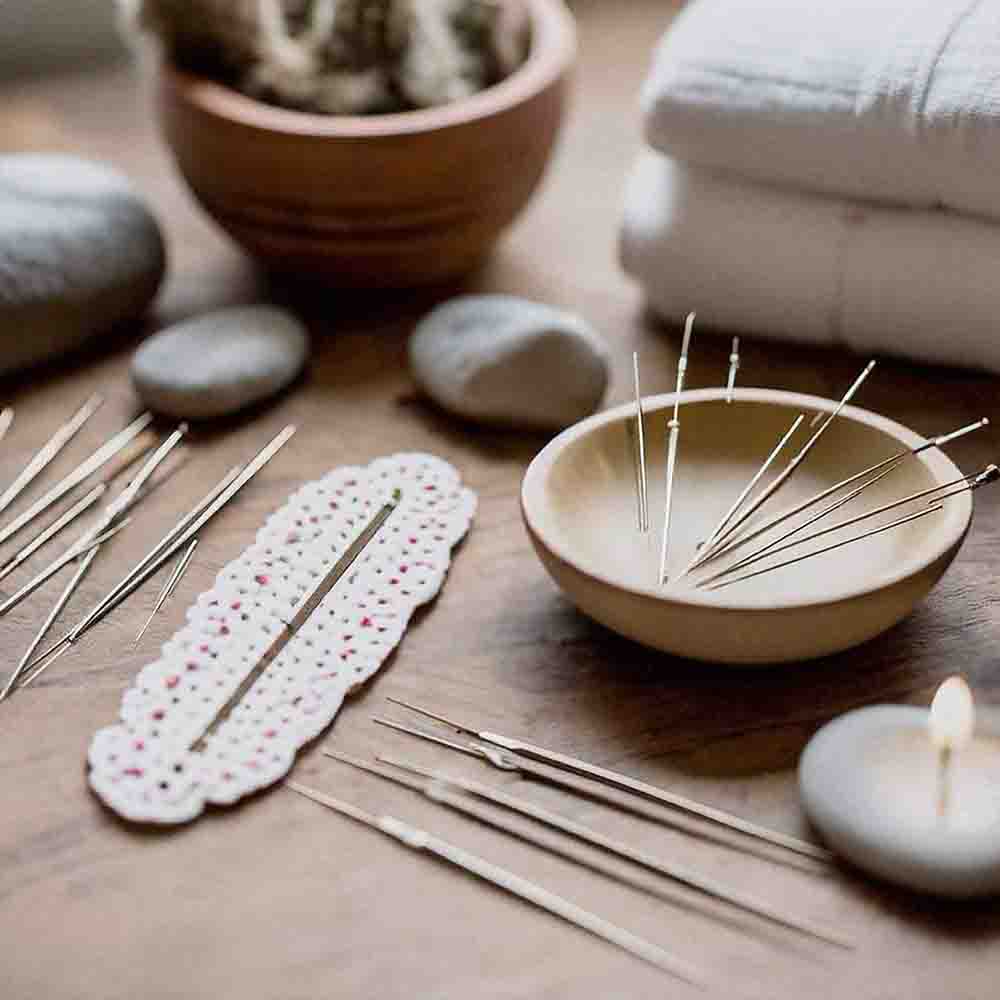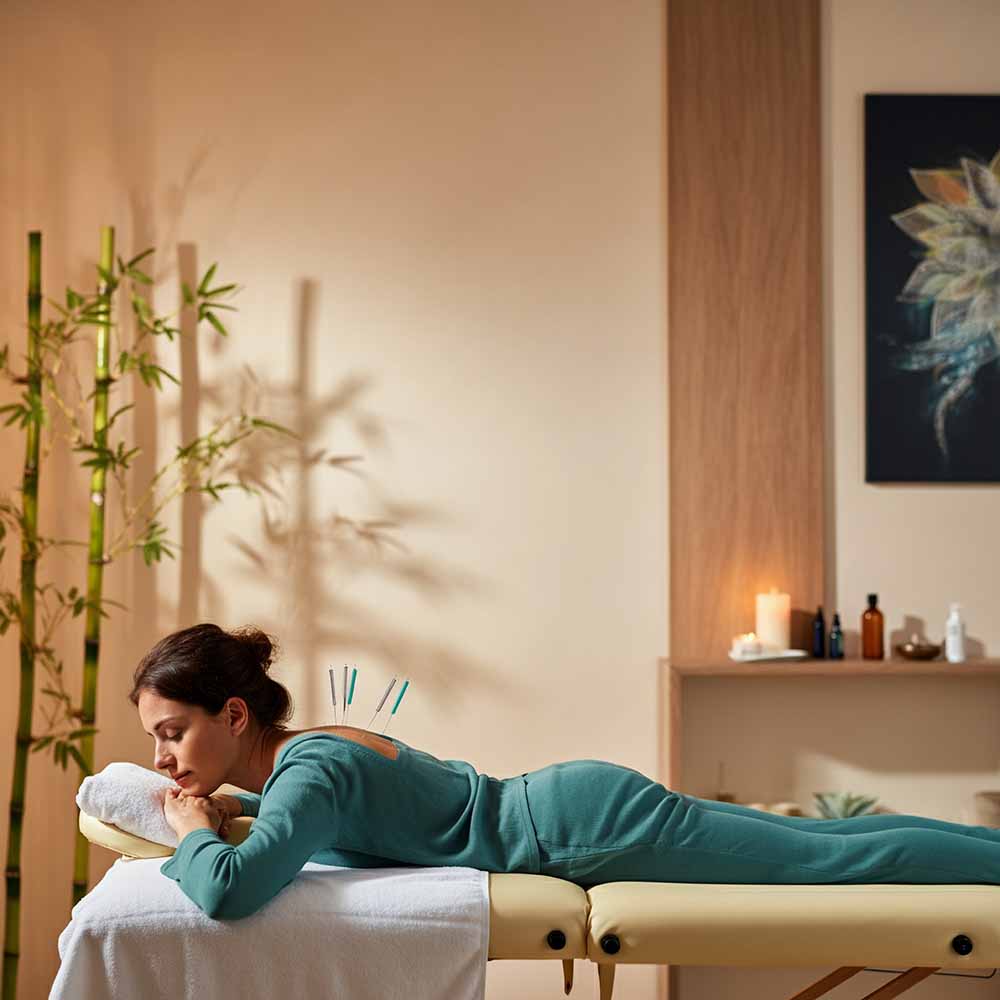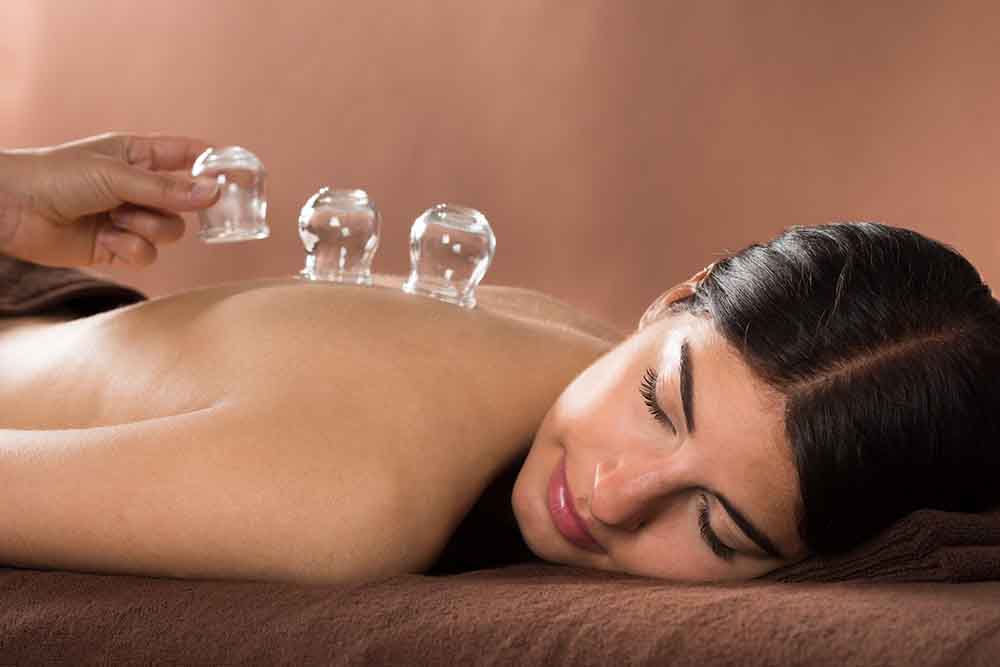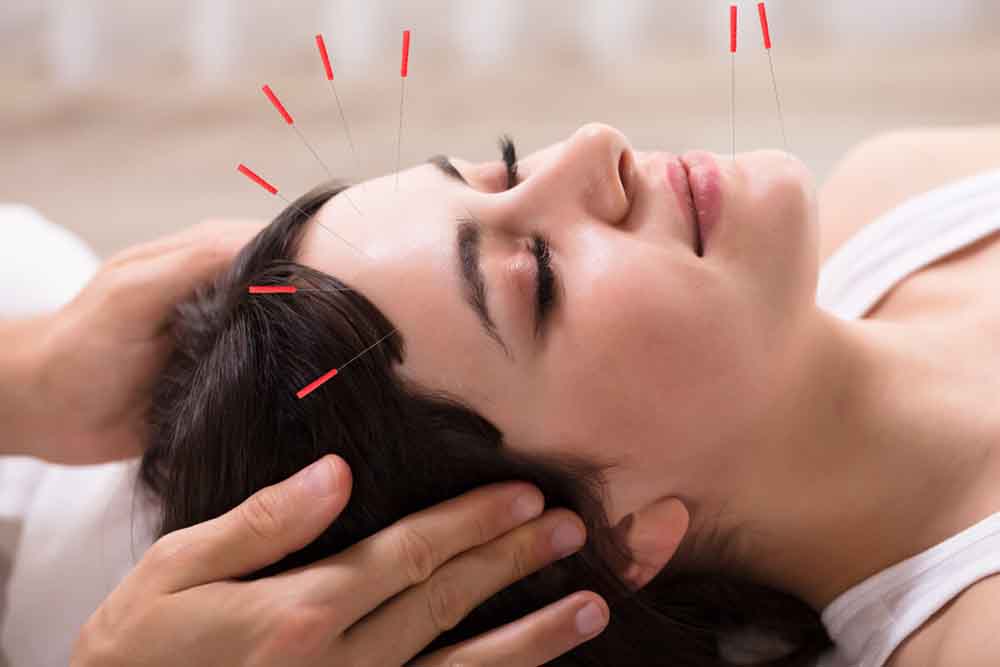Acupuncture is a traditional Chinese treatment for a number of ailments and symptoms, including pain. An acupuncturist inserts very thin steel needles into your skin at various ‘acupoints’. The needles help your body release natural chemicals to combat the ailment or symptom and adjust your qi, or vitality. Acupuncture stimulates particular spots on your body, such as your face, neck, back, and head. It aims to alleviate a symptom or medical condition, such as pain. The primary use of acupuncture is as a supplemental treatment.

Numerous medical conditions can be treated with acupuncture. It is most frequently used to treat chronic (long-term) pain, including:
• Arthritis
• Ache in the neck, back, or muscles
• Migraines and headaches
• Knee discomfort
• Cramps during the menstrual cycle
• Injuries sustained in sports
• Discomfort in the face and other nerves
Acupuncture may also help with other health conditions:
• Adverse effects of cancer and cancer therapy
• Issues with the immune system
• Infertility
• IBS or irritable bowel syndrome
• Menopause and hot flashes
• Discomforts associated with pregnancy
• Overuse syndrome and repetitive strain disorders

Benefits
Acupuncture’s effectiveness has been the subject of conflicting research; some studies have found it to be no more effective than ‘sham’ or placebo treatments. Although the exact mechanism of action of acupuncture is unknown, some possibilities include:
• Endorphins are the body's natural painkillers, and acupuncture may increase their release.
• The autonomic nervous system may be affected by acupuncture, and the location of the needle may have an effect on heart rate, blood pressure, and breathing.

Treatment
After examining and evaluating a patient, an acupuncturist will implant one or more sterile, thin needles and provide guidance. Usually, people typically either sit or lie down for the procedure. The acupuncturist will make use of sterile, single-use needles. When a needle is inserted, one may experience a momentary tingling or stinging sensation. After that, they can feel a dull ache at the needle's base. Depending on the procedure, the needles will typically remain in place for 20 to 60 minutes.
In certain procedures, the acupuncturist will occasionally warm the needles after they are inserted. A person's specific situation will determine how many treatments they require. Over the course of several months, a person with a chronic illness can require one or two treatments every week. An acute health issue typically improves after 8–12 sessions.
Pain
To treat different types of pain, acupuncture is frequently used in conjunction with other therapies. Acupuncture is occasionally the sole method of pain management. People who suffer from persistent lower back pain may find that acupuncture helps them feel better. According to studies, acupuncture and conventional therapy may work better together than they do alone to reduce lower back pain. Research reveals that acupuncture may even be superior to traditional therapy for managing lower back pain for as long as six months, following treatment. The benefits can't be completely explained as a placebo effect.
Mental Wellness
Numerous mental health issues, such as anxiety, sadness, and post-traumatic stress disorder, have been treated with acupuncture.
Depression: The efficacy of acupuncture in treating depression is unknown, and further carefully planned research is required to substantiate its application. Depression should not be treated exclusively with acupuncture.
Generalised anxiety disorder: According to a meta-analysis and review of research, acupuncture may help those who suffer from this condition. According to the study, acupuncture recipients reported more symptom relief than those in control groups.
Addiction: Substance use disorders like alcohol or drug abuse can occasionally be treated with acupuncture. Nevertheless, there is conflicting information regarding its efficacy in this regard.
Sleep Issues
Sleeplessness can occasionally be treated with acupuncture. Although it's uncertain if it's functioning as a placebo, there is some evidence that this works. Research has stated that acupuncture outperformed pharmaceutical treatments in symptom alleviation after more than three weeks of treatment.

Headaches
The efficacy of acupuncture in relieving headaches, especially tension and migraine-related ones, has been thoroughly investigated.
Migraines: A six-month study on migraines revealed that 41 per cent of participants experienced a 50 per cent reduction in the frequency of migraine symptoms when compared to those who did not receive any acupuncture treatment. Additionally, it was observed to be roughly as beneficial as preventative migraine drugs.
Tension headaches: A study has shown that those who get tension headaches, commonly referred to as regular head pain, may benefit from at least six acupuncture treatments. Additionally, compared to individuals who received only medicine, the study found that acupuncture combined with pain medication reduced the frequency of headaches.
Acupuncture is a traditional Chinese supplemental therapy. It can help treat migraines, headaches, osteoarthritis, and chronic pain. There is minimal chance of adverse effects from acupuncture. However, practitioners need to be licensed to practice acupuncture procedures. As a supplementary therapy, acupuncture shouldn't be used in place of medical advice. A person should consult their primary care physician before receiving acupuncture for the treatment of chronic pain or other ailments.